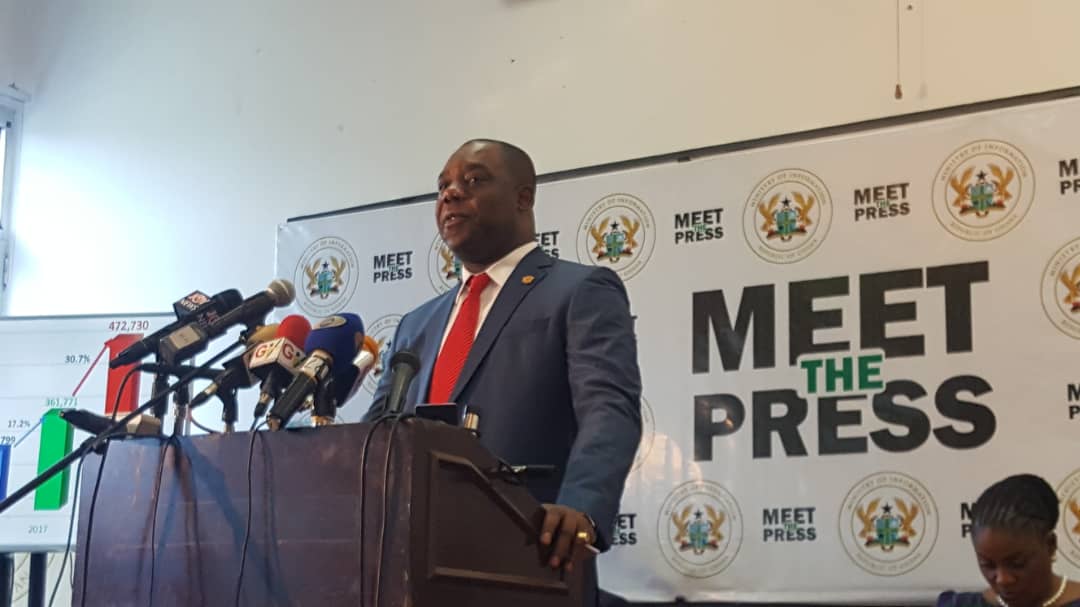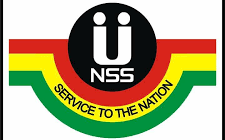400 out of 696 schools to operate double track for 7years
- Posted on
- Comment
Beginning this academic year, all senior high schools (SHSs) are to move from the current trimester system to the semester system, the Minister of Education. Dr Mathew Opoku Prempeh, has announced.
The move, he said, was part of the government’s strategy to ensure that no student was denied admission to SHS under its free SHS policy.
Taking his turn at the meet-the-press series in Accra Tuesday, Dr Prempeh said to enhance opportunities for students to gain admission to SHS, 400 out of the 696 SHSs in the country would operate the double track system, beginning from 2018/19 academic year.
“This system, which is temporary measure, is expected to last between five and seven years,” he said.
from the 2018/19 academic year.
“The system, which is a temporary measure, is expected to last between five and seven years,” he said.
t the event to support Dr Prempeh were the Minister of State in charge of Tertiary Education, Prof; Kwesi Yankah; the Deputy Minister in charge of General Education, Dr Yaw Osei Adutwum; the Director-General of the Ghana Education Service (GES), Prof. Kwasi Opoku-Amankwa, and directors from the ministry and the GES.
Double track
The double track school calendar is an intervention that allows schools to accommodate more students within the same facility. It is often motivated by its potential to reduce overcrowding, as well as save cost relative to the construction of new schools in the short term.
Statistics available show that from 2013 to 2017, a staggering 493,016 Basic Education Certificate Examination (BECE) candidates qualified to pursue secondary education but could not do so because they were not enrolled.
It is estimated that 24,993 of this year’s BECE candidates will miss out on secondary education if the government, through the Ministry of Education, does not adopt an innovative way of accommodating all qualified candidates.
Human resources
Dr Prempeh explained that it had become necessary to adopt the double track system as a stop-gap measure to prevent “wasting human resources”, adding that it was wrong to turn away qualified candidates from pursuing secondary education simply because of lack of space.
He explained that the current high number of candidates was occasioned by the introduction of the free SHS policy, which saw a leap in the number of candidates seeking secondary education from 308,799 in 2016 to 361,771 in 2017, with an expected increase to 473,730, representing 30.7 per cent, in 2018.
In a power point presentation to explain the new system, he said it would rather improve the performance of students, adding that it would also ensure more contact hours, compared to the current system.
The Education Minister further explained that under the current system, contact hours between the teacher and students stood at 1,080 hours a year, compared to the new system in which contact hours would increase to 1,134 hours a year. He said the government had put in an academic intervention to ensure that core subjects, such as English and Mathematics, as well as other subjects, were taught on Saturdays and also on Sundays for Seventh-Day Adventists.
He said GH¢55,824,750 had been voted for the academic intervention programme covering 1,116,495 students in all the 696 public SHSs.
More recruitment
Dr Prempeh announced that 8,872 teachers would be recruited to ensure that no teacher was made to overwork himself or herself, adding that the heads of SHSs would be considered as managers and would, therefore, not be placed under the track system.
He said the ministry, with the GES, had consulted stakeholders in the various institutions and agencies, including the Ghana Education Council, the National Council for Curriculum and Assessment (NaCCA), civil society organisations and faith-based organisations, before deciding to roll out the semester system.











 (Selorm) |
(Selorm) |  (Nana Kwesi)
(Nana Kwesi)